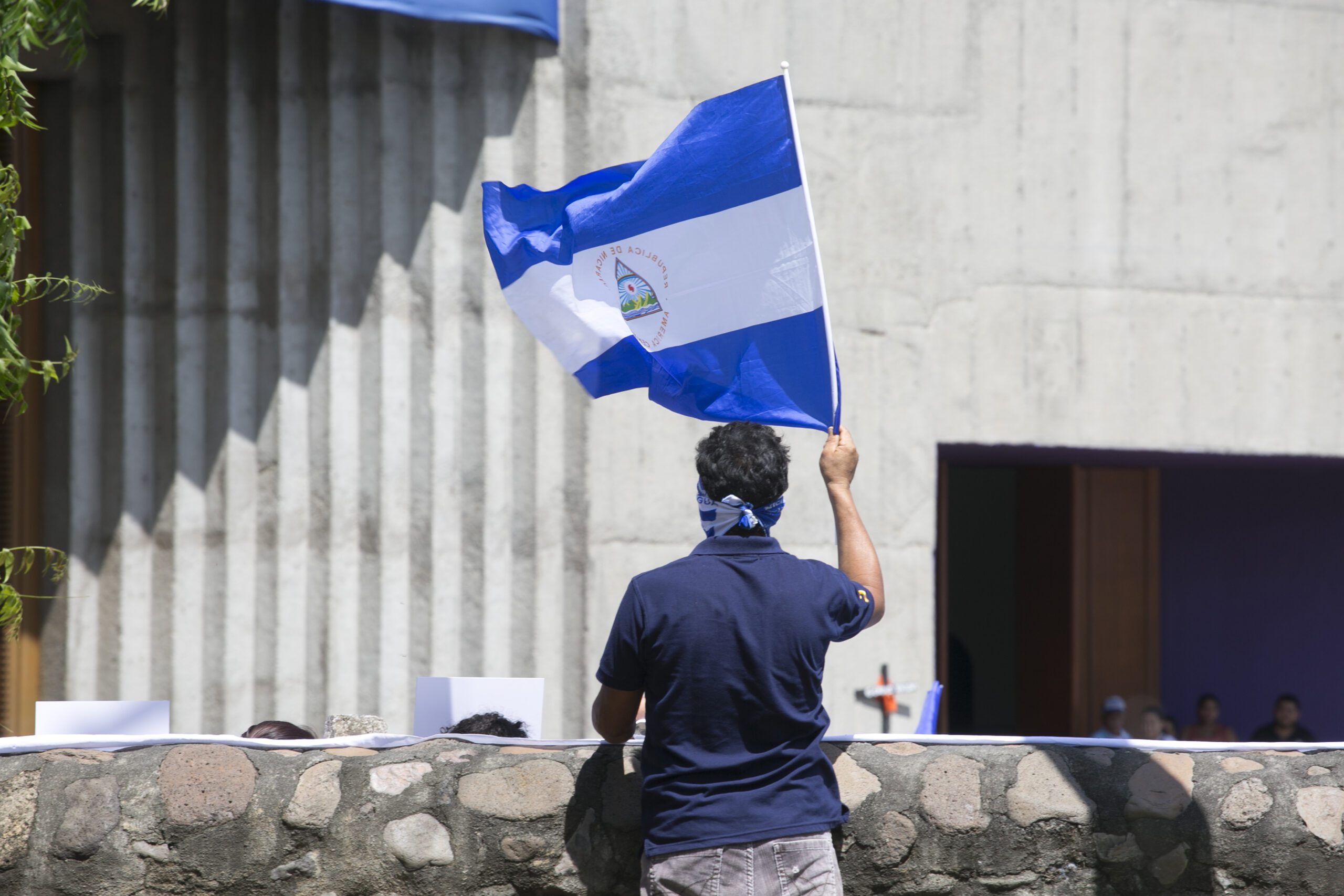Six Years of Crimes Against Humanity in Nicaragua: Justice Must Not Be Delayed Any Longer!
Washington D.C., April 18, 2024 – On the sixth anniversary of the socio-political and human rights crisis in Nicaragua, the Institute on Race, Equality and Human Rights (Race and Equality) […]

Washington D.C., April 18, 2024 – On the sixth anniversary of the socio-political and human rights crisis in Nicaragua, the Institute on Race, Equality and Human Rights (Race and Equality) urges international solidarity with the direct victims of repression and their families, who deserve truth, justice, reparations and guarantees of non-repetition. Race and Equality urgently calls on countries allied with the Nicaraguan people to apply universal justice mechanisms to investigate the individual criminal responsibilities of dictator Daniel Ortega, Vice President Rosario Murillo and other high-ranking officials perpetrators of crimes against humanity, as well as to sue Nicaragua before the International Court of Justice in The Hague.
“On this date we cannot stop thinking about the mothers of April, the families of political prisoners and the rest of the Nicaraguan people who have been clamoring for peace for six years. Peace can only come with truth, justice, reparations and guarantees of non-repetition for the victims of these atrocious crimes. The more time passes, the more difficult it will be to rebuild Nicaragua, Nicaragüita; therefore, countries friends of the Nicaraguan people: Justice must not be delayed any longer, let’s act, let’s seek mechanisms for accountability!“, urged Carlos Quesada, Executive Director of Race and Equality.
The atrocities committed by the dictatorial regime of Ortega and Murillo have left thousands of victims: At least 355 people murdered and more than 2000 protesters injured by state or para-state agents in the context of the 2018 protests; 317 people arbitrarily stripped of their nationality and citizenship rights, 200 journalists exiled; more than 240 people exiled, including Catholic religious figures; approximately 6.5% of the population in exile, seeking asylum or refuge; more than 3625 civil society organizations cancelled; and 121 people deprived of their liberty for political reasons, including women, elderly people, artists, political leaders and Indigenous forest rangers.
“Ortega and Murillo, with their intellectual accomplices and direct perpetrators, have managed to sow terror beyond Nicaragua’s borders with the implementation of statelessness; however, we see mothers of lethal victims, human rights defenders, journalists overcoming censorship, monitoring and advocating despite the risks and reprisals. Their resilience is impressive, let’s not leave them alone in the fight!” said Christina Fetterhoff, Program Director of Race and Equality.
The second report of the Group of Experts on Human Rights on Nicaragua identified high-ranking State officials as perpetrators of crimes against humanity. These include: Fidel Moreno; Public Secretary (FSLN), Municipality of Managua; Ana Julia Guido, Attorney General of the Republic; Maria Amelia Coronel Kinloch, Minister of the Interior; Luis Cañas Novoa, Vice Minister and Political Secretary of the Ministry of the Interior; Gustavo Porras, President of the National Assembly; Horacio Rocha, Ministerial advisor for security matters of the Presidency of Nicaragua; Alba Luz Ramos, presiding magistrate of the Supreme Court of Justice; Marvin Aguilar, magistrate of the Supreme Court; Francisco Díaz, Director General of the Police Nacimiento; and Néstor Moncada Lau, security and intelligence advisor. The Group recommended that states strengthen sanctions against institutions and individuals identified for their involvement in the crimes.
Likewise, a group of British parliamentarians, following their recent investigation “The Nicaraguan Inquiry: The Silencing of Democracy in Nicaragua,” suggested that the States go to the ICJ to sue the dictatorship for violations of the conventions to prevent torture and statelessness, and to apply the mechanisms of universal justice to investigate individual criminal responsibilities for crimes against humanity.
“This year, justice must be a priority on the agendas of the allied states of the Nicaraguan people. From Race and Equality, we continue to accompany victims in reporting before the United Nations and the Inter-American Human Rights System, and to provide information to the Group of Experts for their investigations. To the victims we reaffirm that we are here to listen to them and echo their demands. To the international community and states we say: here you have an allied organization, we put our efforts at your disposal. Justice for Nicaragua! Carlos Quesada, Executive Director of Race and Equality.

